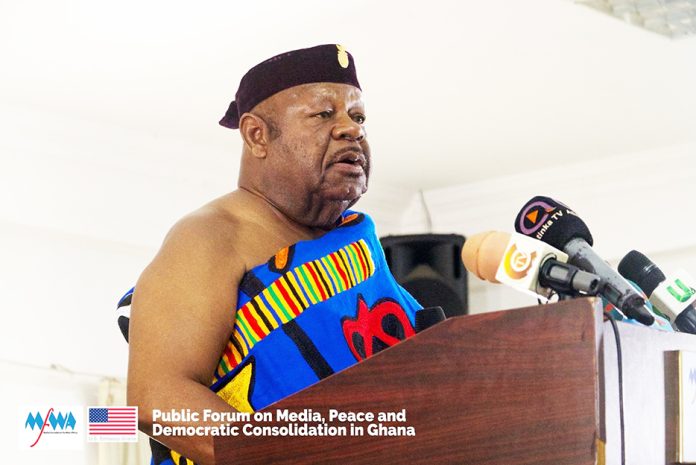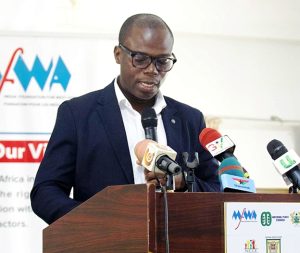
The Konor of Manya Krobo and President of the Eastern Regional House of Chiefs, Nene Sakite II, has called for the establishment of a second chamber in Ghana’s Parliament.
Speaking at a public forum on Wednesday, August 21, 2024, under the theme “Media, Peace, and Democratic Consolidation in Ghana,” he emphasized the need for a bicameral legislature to better serve the nation’s democratic aspirations.
Nene Sakite II argued that a second chamber, potentially comprising traditional leaders and other stakeholders, would provide a more balanced and thorough legislative process.
“We need a second chamber in Parliament to serve the people,” he said.

Drawing comparisons to established democracies like the United States and the United Kingdom, he noted that these countries have successfully utilised bicameral systems to ensure comprehensive decision-making.
He expressed concerns about the current parliamentary structure, which he believes can sometimes become bogged down in partisan conflicts and inefficiencies.
He suggested that a second chamber could help prevent deadlocks and ensure that vital national issues are addressed promptly.
“When we are hung up over there, the second chamber will deal with some of these issues. Then, later on, the two chambers will come together to resolve them,” he explained.
He urged journalists to be responsible in their reporting, particularly during the election season. “You must always be positive and optimistic. What must go out should be the truth, fact-based and the reality,” he advised, underscoring the media’s power to influence public perception and maintain social harmony.
The Konor of Manya Krobo also addressed the issue of chieftaincy conflicts, acknowledging that such disputes pose a significant threat to national security.
He called for better record-keeping, succession planning and the proper conduct of chiefs to reduce these conflicts.
Addressing the forum, which was organised by the Media Foundation for West Africa (MFWA) and sponsored by the US Embassy in Ghana, the Executive Director of MFWA, Mr. Sulemana Braimah, underscored the critical role of media in maintaining peace and ensuring political accountability.
Mr. Braimah emphasised that peace is a fundamental prerequisite for effective governance.
“There’s no government that can govern effectively without peace. To govern effectively, the country must be peaceful,” he stated.
Mr. Braimah also stressed the importance of pre-election peace pacts and the need to address any concerns raised by stakeholders.
“We should not simply sign a peace pact without addressing the issues at hand,” he said.
“If there are issues of parity, we need to look into them and address them properly.”
Turning to the role of the media, he pointed out the significant responsibility journalists have in shaping public discourse.
He criticised the trend of politicians using media platforms to spread hate speech, propaganda and disinformation.
“Our job is to ensure that what is put out there is distilled and only important, fact-based information reaches the public,” he said.
Mr. Braimah urged journalists to go beyond merely reporting statements from politicians and to play an active role in educating the public and interrogating political issues.
A Board Member of the National Peace Council, Madam Joana Opare, emphasised the critical role of the media and other stakeholders in ensuring a peaceful and democratic electoral process during her address at the Public Forum on Media, Peace and Democratic Consolidation in Ghana.
In her address, Madam Opare commended the media for its role as a watchdog of democracy, noting its power to shape public discourse either positively or negatively.
“The media has been crucial in fostering dialogue, promoting transparency and holding leaders accountable,” she said.
However, she warned that this power could also lead to division and instability if not exercised responsibly.
Addressing the forum, Madam Opare stressed the importance of incorporating gender issues into discussions.
She called for attention to the safety and support of women candidates, urging stakeholders to ensure a supportive environment for female participants in the electoral process.







